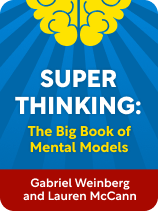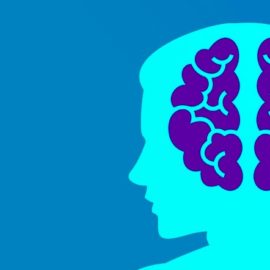

This article is an excerpt from the Shortform book guide to "Super Thinking: The Big Book of Mental Models" by Gabriel Weinberg and Lauren McCann. Shortform has the world's best summaries and analyses of books you should be reading.
Like this article? Sign up for a free trial here.
Why do we make bad decisions? How can you increase your chances of making the right choice?
When making decisions, we are often tempted to prioritize short-term results over long-term benefits. More often than not, this leads to bad decisions in the long run because those short-term benefits come at the cost of future benefits.
Here’s how the failure to think long-term results in wrong decisions you’ll regret down the road.
Failure to Think Long-Term
Some decisions yield benefits in the short term while leading to long-term disaster. To illustrate, consider the mental model based on the boiling frog, which stays in a pot of water as the temperature gradually increases, eventually finding itself boiled alive. Although the increase in temperature feels nice in the short term, it creates a long-term catastrophe.
Weinberg and McCann argue that we’re susceptible to making wrong decisions because of short-termism. In finance, this refers to emphasizing short-term results to the detriment of long-term results. For instance, a company that only focuses on marketing current products might fail to develop new products necessary for future success. Weinberg and McCann suggest that short-termism afflicts our general decision-making as well.
(Shortform note: Certain cultures are more oriented around short-term progress than others, indicating a cultural basis for short-termism. The United States, for example, is especially susceptible to short-termism. East Asian countries, by contrast, are typically inclined toward long-term thinking.)
To combat short-termism, heed the precautionary principle and act with extreme caution when an action’s potentially harmful consequences are unknown. More concretely, this involves analyzing potential risk by considering the harmful consequences that an action could lead to. Ask yourself, “Is there reason to think that this action has dangerous consequences?” If the answer is “yes,” pause before acting. By adhering to this principle, Weinberg and McCann suggest we’re less likely to run into harmful consequences down the road.
| Pushback Against the Precautionary Principle Although the precautionary principle seems intuitive, legal scholars have argued that it has untenable consequences. In particular, when all possible decisions have potentially harmful consequences, the precautionary principle ends in stalemate. For instance, critics of nuclear power object to its potentially catastrophic consequences, while the alternative—fossil fuels—might lead to devastating climate change. The precautionary principle offers little help in such situations. More generally, these situations illustrate conflict between the precautionary principle and expected-utility theory, the view that the rational decision in a given context maximizes utility—in short, it yields the highest net benefit, on average. Because high-risk decisions sometimes have sufficiently high rewards, expected-utility theory might recommend making such decisions where the precautionary principle counsels caution. For example, the possibly vast rewards of transitioning to nuclear energy could justify our doing so, in spite of the risks. To reconcile these decision-making principles, some have argued that the precautionary principle is simply a helpful heuristic to use in practice, not a foolproof law of decision theory. In other words, the precautionary principle is a useful guideline, despite being theoretically questionable. |

———End of Preview———
Like what you just read? Read the rest of the world's best book summary and analysis of Gabriel Weinberg and Lauren McCann's "Super Thinking: The Big Book of Mental Models" at Shortform.
Here's what you'll find in our full Super Thinking: The Big Book of Mental Models summary:
- How to elevate your everyday reasoning and decision-making skills
- Why you shouldn't rely on intuition when making decisions
- How to deter you opposition from engaging in conflict






